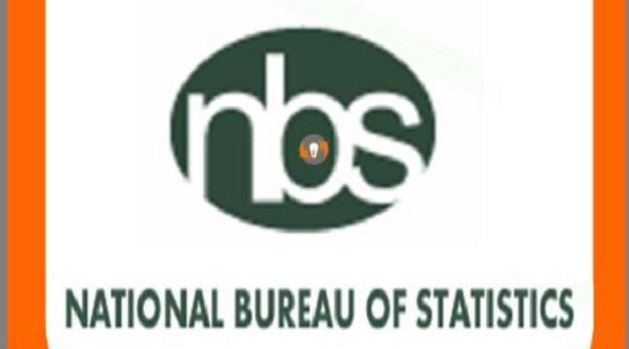E-Business
Group Applauds Nigeria’s AI Push, Urges Seizure of $15Bn Digital Economy Opportunity

Nigeria’s growing investment in Artificial Intelligence (AI) and digital transformation is positioning the country as one of Africa’s most ambitious tech-driven economies, with AI projected to contribute $15 billion to Nigeria’s economy by 2030.

As global technology companies deepen their focus on Africa, Young Professionals for Tinubu (YP4T) has acknowledged the deliberate policy moves by President Bola Ahmed Tinubu’s administration to ensure AI becomes a real driver of economic growth, job creation, and youth empowerment.
Following the President’s high-level discussions with global technology leaders, including his recent meeting with Google CEO Sundar Pichai, there is increasing recognition that Nigeria is taking active steps to secure its place in the global AI economy. But beyond diplomatic engagements, the administration has backed its vision with tangible programs that are already making an impact.
The 3 Million Technical Talent (3MTT) initiative has already begun producing a pipeline of AI-trained professionals, while the National AI Strategy Framework has laid the groundwork for AI integration across finance, agriculture, healthcare, and education.
The administration’s efforts to attract investment into Nigeria’s AI and technology ecosystem have also led to direct support for startups and digital enterprises, ensuring young Nigerians have access to the resources and capital necessary to innovate and compete internationally.
Global partnerships with companies such as Microsoft, Meta, and Nvidia have further reinforced Nigeria’s commitment to AI as a pillar for economic transformation.
“AI is no longer a theoretical concept—it is a defining force in global economies, and Nigeria is now actively securing its place in that future,” said Victor Benjamin, West/South South Director of YP4T.
“For years, young Nigerians have sought opportunities in technology and digital innovation. What we are seeing now is a deliberate effort by the administration to turn that aspiration into reality through strategic policies, funding, and industry collaboration.
“This is a critical time for Nigerian professionals and businesses to position themselves in the AI-driven economy.”
While many African economies continue to grapple with integrating AI and digital transformation into their long-term growth plans, Nigeria’s current trajectory signals a shift toward becoming a leader in AI adoption and development.
The impact of AI is already being felt in precision agriculture, AI-driven financial inclusion, digital healthcare, and education technology, demonstrating how these investments are directly improving productivity, economic diversification, and access to essential services.
However, experts warn that Nigeria must sustain these efforts to fully unlock the potential of AI-driven growth. With a youth population expected to exceed 100 million by 2050, ensuring that young professionals have the skills, tools, and infrastructure to build AI-powered solutions is key to job creation and economic stability.
“As a network of young professionals actively engaged in shaping Nigeria’s future, we see these investments as fundamental to building a globally competitive workforce,” continued Benjamin.
“This is not just about innovation; this is about securing economic opportunities for millions of young Nigerians. AI and digital transformation must be central to Nigeria’s long-term growth strategy, and every young Nigerian should be paying attention to these opportunities.”
With AI projected to add billions to Nigeria’s GDP in the coming years, industry stakeholders, government institutions, and the private sector must work together to ensure these initiatives translate into real economic gains.
As Nigeria continues to attract international AI investment, YP4T remains committed to mobilizing young Nigerians to engage, innovate, and lead in this digital revolution.
E-Business
Senate Passes Bill to Re-enact NIMC Act

The Senate has passed a bill, seeking to repeal and re-enact the National Identity Management Commission (NIMC) Act.

This followed adoption of report of Committee on National Identity Card and Population at plenary on Wednesday.
The report was presented by Senator Victor Umeh (LP-Anambra), chairman of the committee.
Senator Umeh in his presentation said the bill sought to provide for the establishment of a national identity database and the National Identity Management Commission.
According to him,the agency will be charged with responsibilities for maintenance of national database, the registration of individuals and the issuance of identity credentials.
He said the bill would lead to the creation of national identity database to source business biometric and empower NIMC to issue regulations and guidelines for implementation of the act and other related matters.
He said the bill sought to strengthen the legal framework of national and digital identity, hereby creating an optimal foundational identification ecosystem that fosters inclusion, universal coverage, and accessibility.
Senator Umeh said the act would establish a harmonious foundational identity system that is governed by a less restrictive, less cumbersome, non-discriminatory, non-punitive data protection, cost-effective, and compliance with global borders.
Senator Umeh said the bill, when passed into law, would address the challenges and limitations of national Identity management commission Act 2007, repeal it, and then close the gap of incomplete and inaccurate national identity database, provide efficient governance and service delivery.
He said the bill received overwhelming support from stakeholders at the public hearing due to the need to implement the long-awaited database system.
E-Business
World Bank Expresses Concern over Nigeria’s Poor Data, Statistics Quality

The World Bank has expressed concern over Nigeria’s poor statistical performance, noting that the country lags behind its aspirational peers such as Mexico, Colombia, South Africa and Brazil.

Mrs. Julie Osagie-Jacobs, director, Information and Public Relations, Ministry of Budget and Economic Planning, stated this in a statement after a courtesy visit to Senator Abubakar Bagudu, minister of Budget and Economic Planning, by a delegation from the World Bank led by Ndiame Diop, country director; and Mr Johan Mistiaen, practice mfor West and Central Africa, on Wednesday.
In his presentation titled “Next Level Statistics to Support Nigeria’s Reform and Growth Agenda,” Mistiaen stated that Nigeria’s statistical system was not on par with those of its developmental counterparts.
He advised that an annual investment of between $10m and $15m in the country’s statistical infrastructure would significantly improve performance and align Nigeria with its peers.
The statement read in part, “Earlier, Mr. Johan Mistiaen in his presentation on the next level statistics to support Nigeria’s reform and growth agenda, observed that the country’s statistical performance was not at par with its aspirational peers as Mexico, Colombia, South Africa and Brazil.
“He suggested that investing about $10-15m annually into the country’s statistical system can raise performance to that of its aspirational peers.”
Responding, Bagudu assured that the Federal Government would continue to guarantee the independence of the National Bureau of Statistics.
He commended the Bureau for consistently releasing credible and methodical data that have been relied upon by reputable international organisations.
The minister stressed that there would be no government interference in the operations of the NBS.
E-Business
FG Plans to Link Social Register to NIN for Humanitarian Crisis

Federal government has disclosed that efforts are ongoing to link the National Social Register (NSR) to the National Identity Numbers (NIN).

Prof. Nentawe Yilwatda, minister of Humanitarian Affairs and Poverty Reduction, explained that the linked data would assist the country to anticipate crises, mobilize resources faster, and ensure aid reaches those who need it the most.
He said harnessing data would save the country and relevant stakeholders the stress and bottlenecks of outdated processes.
He also identified bureaucratic crisis as the biggest crisis in the humanitarian space which stalls responses to humanitarian issues.
Speaking in Abuja on Tuesday at the National Humanitarian Roundtable programme, the minister said: “People are traumatized by climate change, security threats and economic shock across the country and in the midst of these, we have limited funding.
“The biggest crisis we have is not just the people being killed, the crisis we have is a bureaucratic crisis that does not respond to a humanitarian crisis. Every delay in decision making, every inefficiency in coordination, every shortfall in funding, costs the life of people.
“They say knowledge is power, but knowledge can be destructive too. It can only be power if we use it effectively. By leveraging data and technology, we can anticipate crises; we can mobilize resources faster and ensure aid reaches those who are in need the most and without the bottleneck of outdated processes.
“We are linking the social register to national identity numbers and geotagging all homes of those who are vulnerable across the country so that if there’s any crisis, we don’t need to begin to walk around communities and taking names and asking the States Emergency Management Agency and the National Emergency Management Agency (NEMA) for data.

 News3 days ago
News3 days agoPolice Arrest 4 Bank Staff over Alleged ₦270m Fraud, Money Laundering

 E-Financial3 days ago
E-Financial3 days agoUBA Grows Profit to ₦804Bn, Declares N3 Kobo Final Dividend

 E-Business3 days ago
E-Business3 days agoNIMC to Prosecute Nigerians Printing ‘NIN Cards’, Says Only Slip is Legal

 E-Business2 days ago
E-Business2 days agoFG Plans to Link Social Register to NIN for Humanitarian Crisis

 Telecom3 days ago
Telecom3 days agoOpen Access Fabrics Set to Drive Connectivity to Achieve a Digital Economy

 E-Business3 days ago
E-Business3 days agoUnleashing Nigeria’s Business Potential: The Cloud as Catalyst for Growth

 Telecom3 days ago
Telecom3 days agoMTN Nigeria and Pan-Atlantic University Invite Media Practitioners for 4th Media Innovation Programme

 Telecom2 days ago
Telecom2 days agoKeystone Bank Seeks to Join Suit in Tussle over 9Mobile Shares Ownership


























